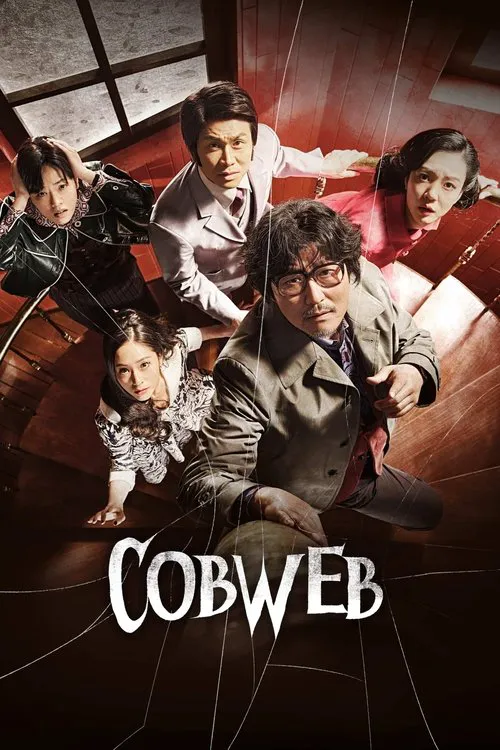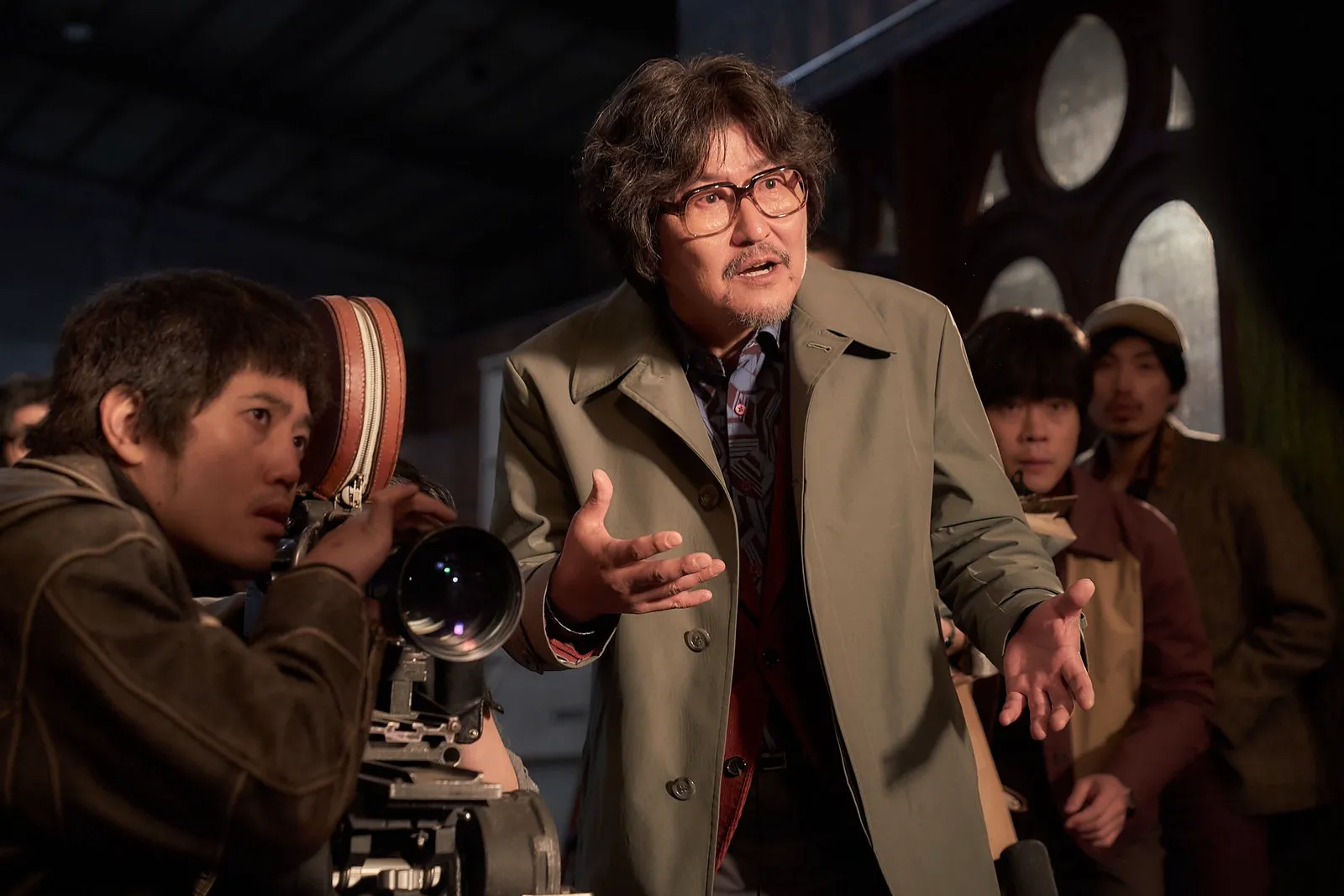Cobweb

Plot
In Kim's film, "Cobweb," the director and his team face an array of obstacles that threaten to sabotage the completion of the movie, which has already reached its post-production stage. The film is a product of the 1970s, a time of great change and experiment in the world of cinema. Kim's creative vision is deeply personal, reflecting the tumultuous emotions and societal shifts of an era. As the story begins, Kim becomes increasingly obsessed with rewriting the ending of "Cobweb." He is convinced that the current conclusion falls short of his artistic ambitions, and he sets out to revise the narrative to better capture the essence of his vision. Despite the logistical challenges and financial constraints of re-shooting key scenes, Kim remains resolute in his pursuit of artistic perfection. However, the director's vision for the remake is met with resistance from various quarters. The censorship authorities, who have already raised objections to the original film's content, express alarm over the revised ending, deeming it to be overly provocative and unacceptable for public consumption. As the censors exert pressure on Kim to alter the film once again, the director finds himself at an impasse. Feeling stifled by the censorship's intrusive presence, Kim faces additional challenges from his actors and producers. The cast members, who have grown accustomed to the original script, struggle to adapt to the changes, while the producers worry about the potential fallout from the revised ending. As tensions simmer and undermine the team's morale, Kim becomes increasingly isolated from his collaborators. Caught in the vortex of chaos and turmoil, Kim must find a way to navigate the complex web of oppositions and drive the project forward. He begins to realize that the revisions he seeks are not only about artistic expression but also about confronting the darker aspects of human nature and the constraints of a rigidly controlled society. With his resolve strengthened, Kim sets out to rally his team and present his vision to the censors. Through a combination of persuasion and intimidation, he manages to secure the necessary permissions to proceed with the revised ending. As the shooting begins, tensions ease, and the team is united in their pursuit of artistic excellence. Through Kim's story, the film examines the tensions between vision and bureaucratic power, highlighting the perils of censorship and the creative process. By emphasizing the personal sacrifices and professional turmoil, the narrative subtly reveals the director's conviction and unwavering commitment to his artistic vision. As the post-production phase draws to a close and the revised ending takes shape, Kim experiences a renewed sense of purpose and creative satisfaction. The movie takes on a deeper, more complex quality, allowing the director to share his honest reflection on the societal issues that plague humanity. Ultimately, Kim emerges triumphant, his masterpiece reborn in a transformed yet bold iteration. The outcome is both a testament to his dedication and a subtle victory over the restrictions that tried to strangle the film's true potential. With "Cobweb," the director has once again underlined the importance of preserving artistic integrity in the face of adversity, even if it means challenging established power structures. The film becomes a self-reflexive exploration of the nature of art and censorship, offering viewers a window into the complexities and conflicts that often arise during the creative process. With its thought-provoking narrative and evocative imagery, "Cobweb" celebrates the power of cinema to challenge societal norms and question the limits of artistic expression.
Reviews
Articles
1. "Cobweb" Review: A Black Comedy Starring the Star of "Parasite"

The Web: A Glimpse into South Korea’s Golden Age of CinemaThe early 1970s. Director Kim Ki-yeol (Song Kang-ho) is plagued by sleepless nights, haunted by unfinished scenes from his latest film, “Cobwe
2. "Cobweb" Film Review: A Black Comedy Starring the Star of "Parasite"

Cobweb: A Dive into Korean Cinema’s PastThe early 1970s. Director Kim Ki-yeol (Song Kang-ho) suffers from insomnia, haunted by unfinished scenes from his latest film, “Cobweb.” He’s convinced that a f
Recommendations

